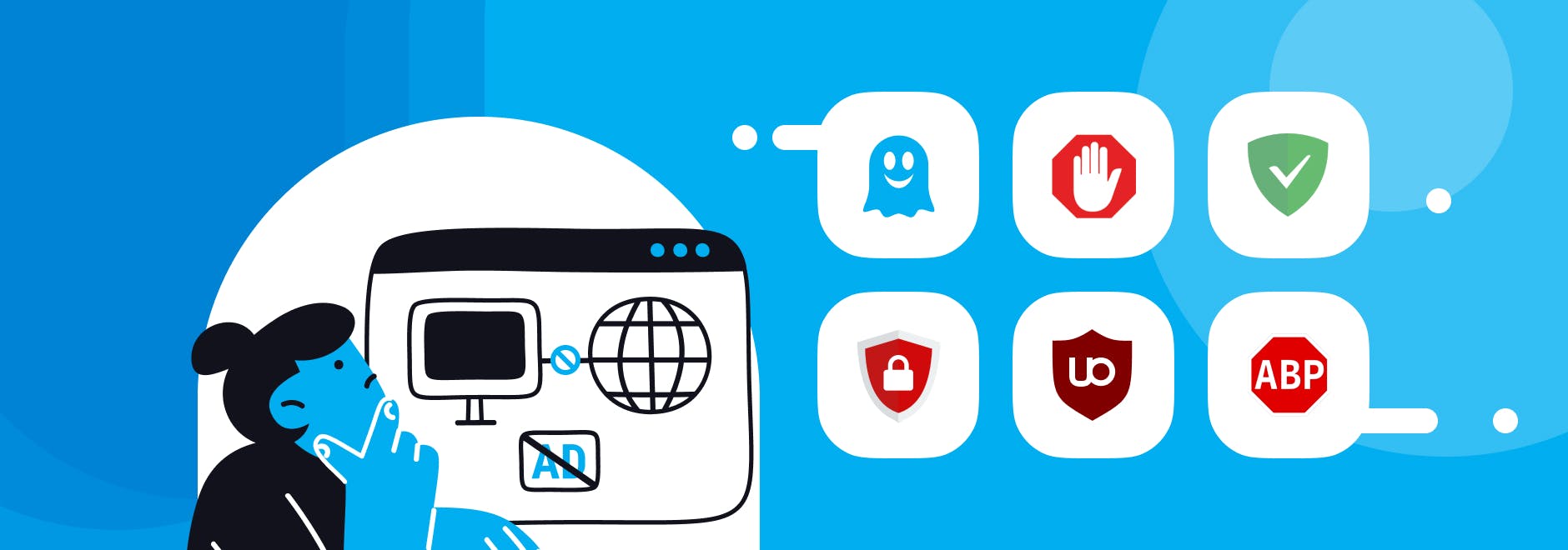Ad blockers: A comprehensive guide
Ad blockers are software programs that prevent ads from being displayed on the websites you visit. They are typically used as browser extensions, but there are also ad blockers available for mobile devices. Ad blockers work by filtering out the code that is used to display ads. This can make web pages load faster and improve your browsing experience by removing distracting and intrusive ads.
Why do people use ad blockers?
There are a number of reasons why people use ad blockers. Some of the most common reasons include:
- To improve privacy: Ad blockers can prevent advertisers from tracking your online activity. This is because many ads contain trackers that can collect information about your browsing habits, such as the websites you visit and the products you view.

- To improve security: Ad blockers can help to protect you from malware and other online threats. This is because some ads can be used to deliver malware to your computer or mobile device.

- To improve performance: Ad blockers can make web pages load faster and reduce your data usage. This is because ads can be large and take a long time to load.

- To reduce clutter: Ad blockers can make web pages more readable and less cluttered by removing distracting ads.
 What are the benefits of using ad blockers?
What are the benefits of using ad blockers?
In addition to the reasons listed above, ad blockers can also offer a number of other benefits, including:
- Increased productivity: Ad blockers can help you to be more productive by removing distractions from your browsing experience.
- Improved battery life: Ad blockers can help to improve the battery life of your mobile device by reducing the amount of data that is used to load ads.
- Better content discovery: Ad blockers can help you to discover new content by removing ads that promote the same products and services over and over again.
What are the drawbacks of using ad blockers?
While ad blockers offer a number of benefits, there are also a few drawbacks to consider:
- Some websites may not work properly: Ad blockers can sometimes interfere with the functionality of certain websites. This is because some websites rely on ad revenue to operate.
- Ad blockers may not block all ads: Ad blockers are not perfect and may not block all ads, especially those that are embedded in content.
- Ad blockers may support unethical practices: Some ad blockers may be used to support unethical practices, such as malware distribution and click fraud.
How to choose an ad blocker
If you are considering using an ad blocker, there are a few things to keep in mind when choosing one:
- Reputation: Choose an ad blocker from a reputable company with a good track record.
- Features: Consider the features that are important to you, such as the ability to whitelist websites, block trackers, and block malware.
- Performance: Choose an ad blocker that is lightweight and does not slow down your browsing experience.
Ad blockers work by filtering out the code that is used to display ads. This can prevent advertisers from tracking your online activity. This is because many ads contain trackers that can collect information about your browsing habits, such as the websites you visit and the products you view.
However, it is important to note that not all ad blockers are created equal. Some ad blockers may be more effective at blocking trackers than others. Additionally, some ad blockers may allow certain websites or types of ads to be displayed.
If you are concerned about ad tracking, it is important to choose an ad blocker that is known to be effective at blocking trackers. You should also read the ad blocker's privacy policy to understand how the ad blocker collects and uses your data.
Here are some tips for choosing a safe and effective ad blocker:
- Choose an ad blocker from a reputable company with a good track record.
- Read the ad blocker's privacy policy to understand how the ad blocker collects and uses your data.
- Make sure the ad blocker is compatible with your browser and operating system.
- Keep your ad blocker up to date to ensure that it is blocking the latest tracking technologies.
It is also important to be aware that some websites may not work properly if you are using an ad blocker. This is because some websites rely on ad revenue to operate. If you encounter a website that does not work properly, you may need to disable your ad blocker for that website.
Conclusion
Ad blockers can be a useful tool for improving your online experience. However, it is important to be aware of the potential drawbacks before using one. If you do decide to use an ad blocker, be sure to choose one from a reputable company and that has the features that are important to you.































